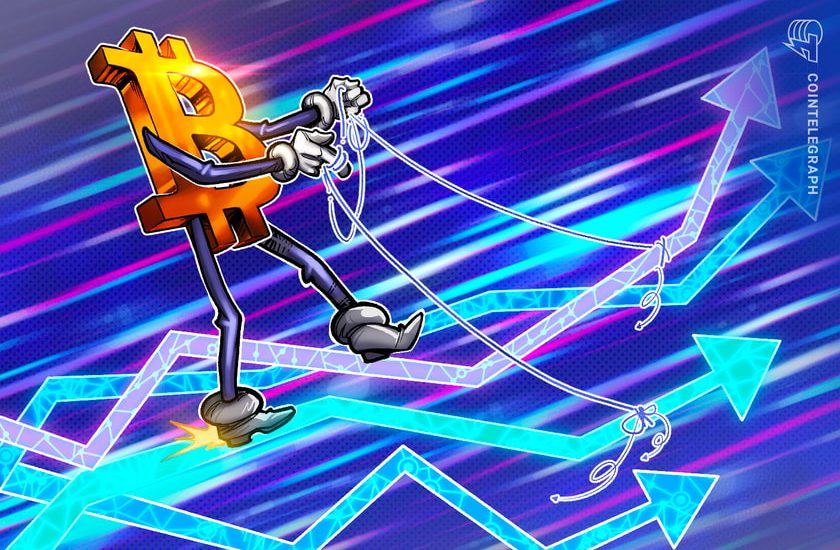- May 26, 2023
- Posted by: admin
- Category: BitCoin, Blockchain, Cryptocurrency, Investments


Bitcoin bulls are sitting on their hands but need to combat short-term sellers rapidly losing profitability, Glassnode warns.
Bitcoin (BTC) has reached a “decision point” for price action, but speculators are in charge, says a new analysis.
In findings uploaded to Twitter on May 26, Checkmate — lead on-chain analyst at Glassnode — revealed a BTC price showdown in the making.
Analyst warns Bitcoin bulls “not doing anything”
Struggling near key trend lines, BTC/USD is giving an increasing number of long-time market participants cold feet this month.
As downside price predictions flow in, on-chain analysts’ attention increasingly focuses on short-term holders (STHs) when it comes to where the price might head next.
As Cointelegraph reported, various metrics specifically covering STHs — defined as entities hodling coins for 155 days or less — are approaching “reset levels” after a period of exuberance.
For Checkmate, this could be a healthy retracement required for the continuation of the 2023 bull market; but equally, things could now turn ugly.
“Bitcoin is currently at a decision point, with Short-Term Holders being the primary lens to view this correction,” he summarized.
Several metrics covering STH profitability are on the radar.
STH market value to realized value (STH-MVRV)
STH-MVRV measures the value of coins moved by STHs compared to those coins’ value as a portion of the overall Bitcoin market cap. When at 1.0, it corresponds to the STH realized price, which is the aggregate price at which STH coins last moved — their breakeven point.
STH-MVRV is currently at 1.022, making a 1.0 reading equate to a BTC spot price of around $26,500.
“In bull markets, this level ($26.5k) should offer sound psychological support. We can trade below it, but a swift recovery would be necessary to justify upwards continuation,” Checkmate commented.

Short-term holder spent output profit ratio (STH-SOPR)
STH-SOPR, as Glassnode describes it, is a “price sold versus price paid” metric that gauges the profitability of spent outputs.
Currently below the 1.0 line, it suggests “loss dominance” among STHs and demands that dip buyers step in next. SOPR does not differentiate between large and small transactions, focusing purely on the number of spent outputs.
“Losses by STH can ONLY be sourced from local top buyers, and counter-intuitively, we want to see top buyers selling the local bottom. This is what creates the FOMO bounce reaction,” Checkmate explains.
Likewise, the short-term holder realized profit/loss ratio — the version of SOPR which takes volume into account — is in danger of flipping bearish. For this to happen, however, it would need to spend a “sustained” amount of time below 1.0.

Short-term holder realized profit/loss ratio momentum
Finally, the trend back to “neutral” territory is also visible in the metric, which alerts observers to sudden changes in trend when it comes to STH profitability.
Related: Bitcoin holds $20K realized price as analyst eyes ‘big moves coming’
Momentum is retreating from its “green” phase, which has been in place since January 2023, the start of Bitcoin’s price recovery.
“STH Profit/Loss momentum is a tool designed to spot rapid changes in market regime and trend. It is extremely responsive, and has returned to neutral gear,” the post added.
“If this thing starts to go red, that would be an early signal that a deeper correction is in play. It has consistently signalled the reversal of trends, often before the first break even happens.”

Concluding, Checkmate called on hodlers — currently dormant and reluctant to spend coins — to step in.
“The bulls need to put in the work if they want higher prices,” he wrote.
“The HODLers certainly do, but they are not doing anything with their coins. We have near ATH coin inactivity.”
Magazine: ‘Moral responsibility’: Can blockchain really improve trust in AI?
This article does not contain investment advice or recommendations. Every investment and trading move involves risk, and readers should conduct their own research when making a decision.
